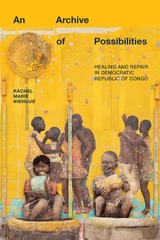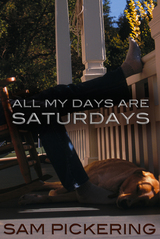
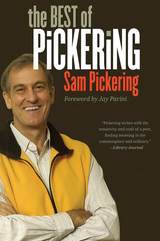
"Pickering has all of Thurber's humor, and he writes as well as E. B. White. He writes with passion, wit, and a strange personal note of self-mockery; he is humanely educated, wise, and capable of a wide range of stylistic effects."
----Jay Parini
". . . he writes in the tradition of Montaigne hammering together a ramshackle affair of surprising nooks, crannies and additions-all under the same roof."
---The Oxford American
"Pickering has the natural essayist's intimate yet distanced take on the world that combines a devotion to particulars . . . with a near-indifference to the status- and achievement-mongering that marks modern life."
---Publishers Weekly
"Pickering writes with the sensitivity and craft of a poet, finding meaning in the commonplace and ordinary."
---Library Journal
"Pickering's genre is unique, but I'm not sure anyone else can write this stuff. I can live with that, as long as Pickering himself continues to wend through the forests, classrooms, airports, billiards championships, hometown parades, and his inner world of Tennessee gags and characters."
---Hartford Courant
His writing is as unique and recognizable as the music of Mozart, the painting of Picasso, or the poetry of Dickinson. Yet most Americans likely know Sam Pickering, the University of Connecticut English professor, from the movie Dead Poets Society. In the film, Robin Williams plays an idiosyncratic instructor---based on Pickering---who employs some over-the-top teaching methods to keep his subjects fresh and his students learning.
Fewer probably know that Pickering is the author of more than 16 books and nearly 200 articles, or that he's inspired thousands of university students to think in new ways. And, while Williams may have captured Pickering's madcap classroom antics, he didn't uncover the other side of the author-Sam Pickering as one of our great American men of letters.
The Best of Pickering amply demonstrates Pickering's amazing powers of perception, and gives us insight into the mind of a writer nearly obsessed with turning his back on the conventional trappings of American success-a writer who seems to prefer lying squirrel's-eye-level next to a bed of daffodils in the spring or trespassing on someone else's property to pursue a jaunt through joe-pye weed and goldenrod. Indeed, Pickering's philosophy, at least on paper, may very well be "Now is the only time."
If you haven't met Sam Pickering before, prepare to be surprised and delighted by these wry and sometimes self-deprecating essays that are witty and elegant and concrete yet wander widely, and include Pickering's well-trod fictional Southern town of Carthage, Tennessee, full of strange goings-on. This definitive collection of the best of Pickering is a must for Pickering fans and a fine introduction for the uninitiated to one of our greatest men of letters.
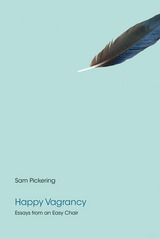
Many of the essays touch on death and the dying, and nothing escapes description and fascination whether profound or seemingly less so: the death of a dear friend or two fledgling cardinals blown from a nest in the back yard and now covered with “periwinkle at the corner of the yard.” During a walk down a country lane, the names of flowers, birds, and bugs fill the page. Even in a meadow buzzing with life, there are reminders of our mortality and brief light too soon gone—and they remind us to read, think, and live with gusto and love.
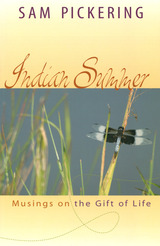
Returning to Nova Scotia every summer contributes to the illusion of smooth continuance, each summer not the first thread in a new fabric but another button on a cardigan, perhaps looser than buttons below but still familiar and comfortable. Every summer the songs of white-throated sparrows bounce from scrub like novelty tunes from the fifties. Early in the morning ravens grind woodenly. . . . No matter how slowly I jog, on the headland butterflies spring from my feet in clumps, first azures and orange crescents, then wood nymphs, and finally over the lowlands near the Beaver River outlet cabbage whites spiraling, dizzy with mating.
Indian Summer is the newest collection of personal essays by Sam Pickering. In typical Pickering fashion, he seeks to capture the gift of living. He brings to the page again his family, students, and a wealth of country characters who live in places that exist only in his imagination and who wander through the stories he tells.
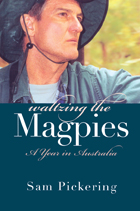
"The art of the essay as delivered by Mr. Pickering is the art of the front porch ramble."
---The New York Times Book Review
"Reading Pickering . . . is like taking a walk with your oldest, wittiest friend."
---Smithsonian
"What a joy it is to 'mess around' with Professor Sam Pickering!"
---The Chattanooga Times
"Pickering is a barefoot observer of the quotidian who revels in the spectacle and its gift for surprise, prefers the rumpled to the starched, has raised puttering and messing about to an art form, and wrings from it more than a pennyworth of happiness and a life well lived."
---Kirkus Reviews
The movie Dead Poets Society is where most Americans first met Sam Pickering, the University of Connecticut English professor. Robin Williams plays the lead character (loosely based on Pickering), an idiosyncratic instructor who employs some over-the-top teaching methods to keep his subjects fresh and his students learning.
Fewer know that Pickering is the author of more than 16 books and nearly 200 articles, or that he's inspired thousands of university students to think in new ways. And, while Williams may have captured Pickering's madcap classroom antics, he didn't uncover the other side of the author-Sam Pickering as one of our great American men of letters. Like the music of Mozart, the painting of Picasso, or the poetry of Emily Dickinson, you can spot Pickering's writing a mile away; there's no mistaking the Pickering pen. As an ample demonstration of the author's literary gifts, Waltzing the Magpies is his unabashedly lush and Technicolor travelogue from Down Under.
On the face of it, Waltzing is the chronicle of a sabbatical year spent with family in Australia. Yet beneath the surface Pickering's big themes-family, nature, seizing the moment-move in a powerful current that frequently bursts out in moments of ecstatic revelation and intense sensual flourish. Through it all Pickering weaves stories from his fictional Southern town of Carthage, Tennessee, especially when the goings of the outside world get rough.
Waltzing the Magpies is classic Pickering at the height of his literary powers, and places him in the company of such great American essayists as E. B. White and James Thurber, but with an irony and observational prowess that is pure Pickering.
READERS
Browse our collection.
PUBLISHERS
See BiblioVault's publisher services.
STUDENT SERVICES
Files for college accessibility offices.
UChicago Accessibility Resources
home | accessibility | search | about | contact us
BiblioVault ® 2001 - 2024
The University of Chicago Press




